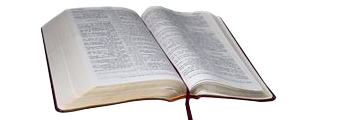
CHURCH OF THE BRETHREN NETWORK
Continuing the work of Jesus : Peacefully ~ Simply ~ Together
UNOFFICIAL WEBSITE OF THE CHURCH OF THE BRETHREN

 |
CHURCH OF THE BRETHREN NETWORK Continuing the work of Jesus : Peacefully ~ Simply ~ Together UNOFFICIAL WEBSITE OF THE CHURCH OF THE BRETHREN |
 |
 |
 |
 |
ABC News
ABC News, Howard K. Smith - Harry Reasoner Report
Reported by Jim Kincaid
May 4, 1971
HARRY REASONER: Ted Studebaker of West Milton, Ohio, was a young man who told his draft board he could not conscientiously accept military service, but that he was perfectly willing to go to Vietnam. ABC's Jim Kincaid reports on what happened to him.
(Background music sung by Ted Studebaker, recorded some weeks earlier in Vietnam and sent to his parents.)
JIM KINCAID: When Ted Studebaker went to war, he took no weapons. He took instead a guitar, a small tape recorder, but most important a dedication to the idea that more can be accomplished with tools than with guns. Ted Studebaker's Army was the Vietnam Christian service. His assignment: to help the mountain people of the village of Di Linh. He worked here for two years and planned to stay a third. Here he fell in love with Pakdy, a gentle Chinese girl from Hong Kong, like him, a volunteer. Here they married.
About a week later, on April 26, a Vietcong unit attacked Di Linh. The attack opened with a mortar barrage, and later the invakers entered the house and shot Ted Studebaker to death. The Vietcong obviously considered him an enemy; after all, he was an American. But they couldn't really have known Ted Studebaker.
A few days later, Ted Studebaker's widow journeyed to his home near West Milton, Ohio, there to join his family and to plan a memorial at the family's church. A memorial that would be, in Pastor Phillip Bradley's words, a celebration of the life of Ted Studebaker.
PASTOR BRADLEY: Ted saw both the agony and the ecstasy of life, both the grandeur and the misery of man. He said yes to his world even though he wrote, "I have never heard of a President pinning a medal of honor on a pacifist. These are the sacred glories reserved for those who can kill, maim, capture or destroy the most, and the more human lives involved, the more glorious the award seems to be. What a contradiction of values. How can a great society be so inconsistend and incoherent?"
(Background music--"Blowin' In The Wind"--sung by Ted Studebaker.)
JIM KINCAID: Ted Studebaker loved this song and send a recording to his family. His wishes concerning his final resting place were never clearly stated, but his mother feels she knows the proper way.
MRS. STUDEBAKER: He especially liked this view out here under the two willow trees and we feel that this spot on the farm is so much a part of what Ted loved here and we think this would be a very appropriate place to scatter his ashes. The ashes being scattered, some would remain on the farm and the rest will be, as his wife remarked, blowing in the wind.
JIM KINCAID: Ted Studebaker was a man who believed peace was possible. He had his roots in the land and it occurred to him that a land that needed him was a tortured land far from his farm in Ohio. He went there willingly; now he has come home.
(Fadeout of "Blowin' In The Wind")

